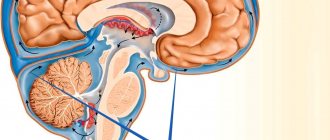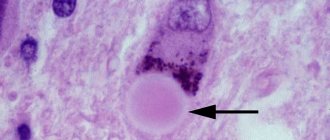September 6, 2018
Often, chronic illness occurs along with depression. Moreover, some of these diseases can cause it. According to statistics, a third of all patients suffering from chronic diseases are depressed. What are the symptoms? How to overcome depression? What kind of diseases provoke its appearance? Read about this in our article.
Symptoms of depression in chronic illness
For some people, chronic illness becomes part of their life. It lasts for a long time and most often does not heal completely. In this case, the condition of patients is controlled with the help of medications, physical activity and a special diet. Chronic diseases include diseases such as HIV, diabetes, arthritis, multiple sclerosis, etc.
It's not surprising that depression can occur when you have a chronic illness. After all, the disease significantly changes the patient’s usual lifestyle. For example, this manifests itself in limited ability to move independently and take care of oneself. Due to a chronic illness, the patient often has to give up favorite activities, which undermines his hope for a bright future. Under such circumstances, the patient begins to be overcome by sadness and despair. In addition, depression can be caused by physical aspects of the disease or side effects of medications used.
As for the symptoms, with a chronic disease they often go unnoticed, not only by the patient’s family, but also by himself. After all, when fighting an illness, most people consider constant depression and sadness to be completely normal manifestations. Often, the symptoms of depression are disguised as other physical ailments that treatment is aimed at combating. However, depression itself is not eliminated. After all, its treatment must be carried out separately.
Chronic diseases caused by depression
Of course, any serious illness can cause depression. The risk of its occurrence depends on two factors: the degree of complexity of the disease and changes in the patient’s life because of it. The risk of developing depression in men is 5-12%, while in women it is 10-25%. In the presence of a chronic disease, the risk of its occurrence increases to 33%.
Depression, which occurs with a chronic disease, worsens the patient's condition. This is especially true in cases where the disease does not allow him to lead a full life or causes severe pain or fatigue. Moreover, depression can increase pain and fatigue. At the same time, it can lead to the fact that the patient wants to isolate himself from society, which, most likely, will only worsen his condition.
Below are statistics on the occurrence of depression in various chronic diseases:
- stroke – from 10 to 27%;
- coronary artery disease – from 18 to 20%;
- diabetes – 25%;
- cancer – 25%;
- chronic pain syndrome – from 30 to 54%;
- multiple sclerosis – 40%;
- Parkinson's disease – 40%;
- heart attack - from 40 to 60%.
St. Petersburg State Budgetary Healthcare Institution "Nikolaevskaya Hospital"
March 14, 2018
“Features of a woman’s psycho-emotional state after childbirth.
How to prevent postpartum depression?
Prepared by: medical psychologist at the antenatal clinic Glebova N.A.
Childbirth is a very powerful physiological process. Naturally, it affects both the physical and psychological state of a woman. According to statistics, 80% of women in labor experience “postpartum blues” or “sadness syndrome” (or “blues” syndrome) and this percentage tends to increase. Let's take a closer look at the emotional state after childbirth.
The emotional uplift and euphoria that occurs immediately after the birth of a child, in most women, by 2-3 days after birth, is replaced by low mood, sadness, uncertainty, confusion, and emotional discomfort. A woman-mother may experience an inexplicable desire to cry, depression and even irritation. The cause of this condition after childbirth is not reliably known, but there are versions of its occurrence. Firstly, rapid and powerful changes in hormonal levels in the last weeks of pregnancy and especially after childbirth cannot but affect a woman’s mood. “Hormonal shock” is a biological factor in the development of anxiety. Secondly, for women who have become mothers for the first time, the new role of “mother” brings a lot of anxiety and anxiety . In addition, after long months of pregnancy have passed, and the expectant mother has become accustomed to her condition, after childbirth there is even a feeling of losing something important and dear. Thirdly, the cause of tension may be physical fatigue. Constant lack of sleep caused by the baby's schedule and household responsibilities can throw a woman out of psychological balance. Fourthly, a dysfunctional family environment (conflict and discord in a married couple, lack of support from loved ones and a sense of “family happiness” or a serious illness of a family member) can aggravate a woman’s state of stress and lead to depression.
Psychologists also note that typological personality traits and a woman’s age aggravate her emotional state in the postpartum period:
- In the “risk group” are women-mothers under the age of 18 years. and above 35l.
- Emotionally unstable type (excitable, spontaneous, impulsive).
- An anxious personality type with increased sensitivity and suspiciousness (increased sensitivity to external influences).
- Emotionally immature, women with infantile traits who cannot withstand life's blows.
- Rigid, straightforward, hyper-responsible women with hypernormative attitudes (make “.
An unfavorable obstetric and gynecological history, reluctance to have a child, or the severity of the child’s condition (for example, identified pathology or peculiarities in the baby’s health) also create the ground for the occurrence of postpartum depression.
Deterioration in mood after childbirth should be distinguished from postpartum depression . Immediately after childbirth, against the background of hormonal changes, the mood of the mother in labor worsens and “postnatal sadness” occurs with the presence of depressive reactions - they are not so deep, short and reversible - in approximately the first two to three weeks to 1 month of the child’s life. This “ postpartum blues” is manifested by a woman’s tearfulness, feelings of depression, insecurity, fear, and self-doubt.
Postpartum depression itself begins at 3-4 months of a child’s life and lasts up to six months or more. Symptoms of postpartum depression include: a feeling of constant, deep melancholy , inability to enjoy the child and life in general, lack of interest in caring for the baby, decreased appetite, increased anxiety, insomnia.
If mood swings usually do not have a very strong effect on overall well-being and pass rather quickly, then postpartum depression affects the entire body and can last a very long time . Anxiety, depression, fatigue, irritability, panic attacks, a feeling of unreality, poor sleep, loss of appetite and libido, helplessness in household chores, loss of love for your child - all these are signs of fairly common postpartum depression. And its consequence is that a woman ceases to experience the joy of her own motherhood, stops taking care of her appearance, avoids communication, and may even become addicted to medications or alcohol.
So, there are three types of postpartum crises :
- “postpartum blues” (melancholy) , which appears during the first few days after childbirth, when you want to cry, there is a feeling of depression, insecurity, fear, self-doubt - support and help from a close circle is needed;
- mild degree of depression , which is accompanied by sadness, attacks of helplessness, loneliness, fear - consultation with a psychologist is necessary;
- chronic depression : characterized by severe nervousness, a feeling of inferiority, constant attacks of anxiety and fear, when ordinary activities seem completely unbearable. The mood is low, there is no joy in life. A woman often refuses food, libido decreases; seeks privacy, refuses to breastfeed. Sleep disturbance (insomnia or nightmares). Such depression can persist for a whole year, and sometimes even three or four years. A variant of postpartum depression may develop, reminiscent of manic-depressive disorder (states of excitement, euphoria and fussiness are replaced by passivity, lethargy, melancholy, apathy). Of course, in this case, the help of a psychotherapist or psychiatrist is necessary.
Modern medicine today views depression as a natural reaction of the body to childbirth and motherhood. Therefore, a young mother should be mentally prepared in advance for the fact that after the birth of a child, her feelings may become somewhat unstable and rapidly change in different directions: from joy to despair and vice versa. You should also warn your relatives about this so that they do not perceive this condition solely as the whims of a spoiled lady and help the woman get through this period as easily and quickly as possible.
What should a woman do to prevent postpartum depression? Advice for women in labor:
- Remember that the onset of motherhood will require you to review your entire lifestyle , as a result of which you will simply have to adapt (for example, you may not have time to watch TV).
- Try to determine your priorities and don’t try to keep the house in the same condition ; you simply don’t have enough strength to maintain impeccable cleanliness. Reassure yourself that the chaos that has reigned in your once-so-tidy home is a temporary phenomenon.
- Don't forget that you just need to find time to be alone with yourself , wander around the shops, visit a friend or go to a beauty salon in order to find balance and connection with the world around you. Therefore, do not hesitate to at least occasionally ask your loved ones to babysit your child and do not take into account what people think of you.
- Distribute responsibilities in the family , involve your spouse in helping to care for the child and do not forget to praise him.
- Rest is no less important for you after childbirth. Try setting specific hours for rest , preferably during the day . If you don't want to sleep, just relax, close your eyes and don't communicate with anyone at this time. Drink a cup of mint or chamomile tea. These herbs have calming properties. And also watch your diet.
- While your child is sleeping, read a good book . Reading is one of the best ways to avoid stress. Rent a comedy cassette. Laughter is a great stress reliever.
- Turn off your phone and take a hot bath with aromatic oils . Turn on some nice music and ask your husband to give you the massage you need to relieve muscle tension and improve your mood. And in order to enhance relaxation, add a few drops of aromatic oil to the massage oil. Ylang-ylang, sandalwood, lemon, orange, lavender and chamomile oils have calming properties.
- Find time to do gymnastics. It has already been proven that if you do gymnastics during depression, your emotional state improves much faster. And regular gymnastics reduces tension, fatigue, aggressiveness and depression, gives vigor and lifts your spirits. In addition, exercise distracts you from everyday worries. By doing them, you will be able to forget about your problems at least for a while.
- Breastfeed your baby, hold him in your arms often, talk to him and smile.
- Share your experiences with your close circle, maintain emotional contact with them, find support and approval in them.
- If you cannot cope with depressive reactions, then seek help from a psychologist or psychotherapist.
Dear women! Remember that a child needs a happy mother, whose nerves are in perfect order, and who is generally happy with her life. Before and after birth, the baby subtly senses your mood, rejoices and gets upset with you. When a mother feels bad, her child also feels bad; the more anxious the mother, the more anxious the baby will be. The mother-child dyad will be reliable if the woman knows how to properly care not only for the child, but also for herself.
- Share:
- Livejournal
- Blogs@Mail.ru
- LiveInternet
- MySpace
Print page
Treatment of depression in chronic diseases
For depression resulting from a chronic illness, you should contact a clinical psychologist. Its early diagnosis and proper treatment will help avoid possible complications and even suicide. There are often cases that successful treatment leads to an improvement in the general well-being and condition of the patient, and also gives new strength to fight a chronic disease.
If depression occurs due to a physical disability or as a side effect of medications used, the treatment plan must be changed. In other cases, it must be treated as a separate disease. In approximately 80% of patients, depression is eliminated through the use of appropriate medications, psychotherapy, or a combination of treatments. As a rule, antidepressants begin to work within a couple of weeks. But regular consultations with your doctor are necessary to choose the most suitable medicine.
Useful tips for depression due to a chronic illness
To avoid depression if you have a chronic illness, consider the following tips:
- If you feel depressed for a long time, then do not delay, but quickly consult a doctor.
- Communicate more with other people. Spend time with family and friends as often as possible. If you don't have anyone to talk to, ask your doctor about support groups where people with the same illness share their experiences with each other.
- Try to do things that interest you, unless it interferes with your treatment. Being active will allow you not to lose faith in yourself and be part of society.
- Find out more about your condition. Read various articles and stories of patients with the same disease as you. You can find something interesting for yourself in them.
- If you constantly experience pain, consult your doctor about possible ways to eliminate it or at least alleviate it.
- Make sure the doctor is really right for you. You must completely trust him and calmly discuss with him all your questions regarding the disease.
- If you suspect that a drug you are taking is causing depression, contact your doctor immediately to find a different drug for you, if possible.
Thus, if a chronic disease causes bouts of depression in a patient, this will negatively affect the overall course of his treatment. Living with such a disease is a difficult ordeal. Therefore, sadness and despair are a natural reaction to the ongoing struggle with the disease. But if depression does not leave the patient for a long time, and in addition there is a disturbance in food and sleep patterns, as well as loss of interest in favorite activities, then it is necessary to seek help from a clinical psychologist as soon as possible.
Spring depression
08.Apr.2021
But first, it’s worth checking what’s bothering you: depression or loss of strength, or maybe it’s increased irritability due to overexertion? Depression, as a disease in the medical sense, refers to a severe mental illness that occurs due to biochemical changes in the human brain and requires serious and long-term treatment. The following symptoms are also characteristic of depression: motor retardation, both in movements and in thoughts; constant feeling of anxiety; devastation; irritability; insomnia (or vice versa, increased sleepiness); decreased appetite and weight (or increased appetite and weight gain); loss of vital activity, decreased interest in favorite activities, weakened concentration; constant feelings of guilt, hopelessness and personal inadequacy; causeless tears (or inability to cry); apathy; weakening of attention and memory; obsessive thoughts about death or suicide. Depression as a mental illness is determined by heredity and various life-changing events. You should pay close attention to yourself if you notice several symptoms, especially if they do not appear temporarily, but are protracted.
Spring depression
is a mental disorder characterized by three main manifestations: decreased mood, loss of a sense of joy, and a pessimistic assessment of current events.
The reasons why spring depression may occur are completely different. Everything is very individual. It can be the result of both fatigue and idleness, both as a result of vitamin deficiency and jet lag, and it is also worth considering the lack of sun and vitamin D. Also, the causes of spring depression can be: the body’s defensive reaction to the change of season; lack of physical activity; hormonal changes in the body; lack of fresh air causing oxygen starvation and leading to hypoxia; psychological stress.
The reasons are not always
may be conscious. And it is not a fact that awareness of the reasons will be the solution to the issue. Likewise, eliminating already recognized causes will not necessarily lead to relief from symptoms and to recovery. If you were unable to cope with the problem on your own at the first stage, when spring depression is even more like a temporary blues, then consult a psychologist.
In order to cope with the symptoms of spring depression, you need to literally and figuratively add more bright colors. Introduce fruits and vegetables into your diet - they are rich in vitamins and color. For example, bananas can activate the production of serotonin in the body. And peanuts, walnuts, soybeans, and hazelnuts are full of the “vitamin of optimism” and magnesium, a natural antidepressant. White apples, orange oranges, green cucumbers, red tomatoes - bright spring colors - tasty and healthy. If you decide to treat yourself to a new wardrobe, then let it be things or accessories not in practical black and gray colors, but in bright and rich ones that create a spring mood. If you have the opportunity to go on a trip, even on foot in your hometown, be prepared for new vivid impressions, new people, and new delights. Allow yourself joy, allow yourself to smile, respond to the slightest positive signals from your inner feelings. Move more, because physical activity allows your body to mobilize and return to normal. Listen to music - any music you like. In the volume and direction that you choose, guided by nothing other than your own wishes at the moment. Treat yourself. Try to remember what made you happy before, something that will give you pleasure and this has already been tested from personal experience. Think about what you could do to please your loved ones, do it for them and for yourself. Get at least 8 hours of sleep. And it is advisable to follow the regime. Due to the processes that take place in the body and for the benefit of your health, go to bed no later than 11 pm. Don't let your nightly thoughts fuel your blues. As you know, the morning is wiser than the evening. And more positive.
To some extent, during spring depression it is useful to be alone, but be sure to interrupt it with meetings with friends, loved ones or family. Ask them why they are proud of you, what useful, kind, important things you have done for them. Believe me, they will remember things that you did not consider important, and this may please you no less than their loving eyes. Get a pet. The need to take care of him and the changes in life associated with a new regime, a new living creature that makes you smile, will pull you out of your usual routine. Make your life varied. Look for something that will captivate you and help you get out of depression. Make an appointment with a psychologist to get rid of depression effectively and easily.
Use one, several, or none of these recommendations, but be sure to think about what your spring depression wants to tell you, why you need it, and even in such a pleasant, warm, blossoming period. Is she pushing you to change something? What exactly? Does she want you to be alone? So that you take time for yourself and get to know yourself better? But this is really important.










